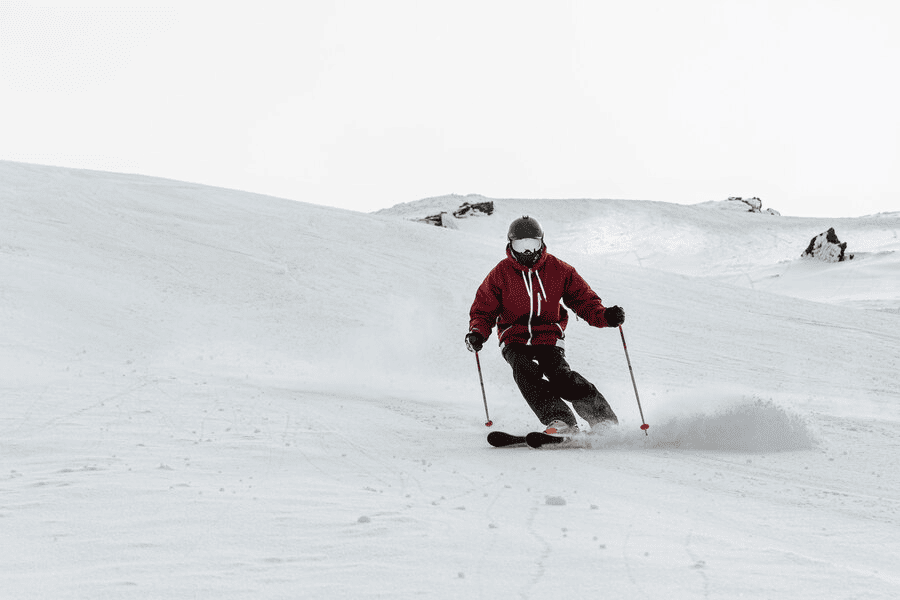
Skiing in the breathtaking mountains of Colorado is a thrilling experience that attracts people from all over the world. However, this exhilarating sport comes with its share of risks, and ski accidents can happen. When a collision occurs on the ski slopes, it’s important to understand Colorado ski collision law, who may be liable, and whether you can seek legal guidance and compensation.
In this article, we’ll provide you with valuable insights into Colorado’s ski collision law and what you need to know if you find yourself in such a situation.
Understanding Colorado Ski Collision Law
Colorado Ski Safety Act
Colorado, known for its world-class ski resorts, is also renowned for its stringent laws when it comes to skiing and snowboarding. The Colorado Ski Safety Act is the primary legislation that governs the rights and responsibilities of skiers and ski area operators. This act is designed to protect both the safety of skiers and the interests of ski operators.
Under the Colorado Ski Safety Act, there are certain key provisions:
Inherent Risks: The act recognizes that a person skiing downhill and snowboarding comes with inherent risks. These risks are part and parcel of the sport, and anyone engaging in these activities is assumed to have accepted these risks. It means that if you are skiing or snowboarding, you are responsible for your safety to a certain extent.
Primary Duty: Skiers and snowboarders have a primary duty to ensure their safety. This includes maintaining control and proper lookout while on the slopes, as well as avoiding collisions with other skiers.
Responsibility of Ski Area Operators: Ski area operators have a duty to properly maintain their ski areas and equipment. They are also responsible for clearly marking and maintaining ski slopes and trails and having a sign system in place to inform skiers about the degree of difficulty and potential risks.
Causes of Ski Collision
Ski collisions can occur due to various factors:
Speed and Control: Skiers moving at excessive speeds or lacking control over their movements can collide with others or objects.
Inexperience: Novice skiers may struggle with maneuvering and avoiding collisions, especially in crowded or challenging terrains.
Negligence: Failing to follow skiing etiquette, not yielding to others, disregarding signage, or intoxication can lead to accidents.
Equipment Malfunction: Defective ski gear or equipment failure can cause unexpected accidents.
Weather Conditions: Poor visibility due to fog, snow, or other weather elements can contribute to collisions.
Terrain and Congestion: Crowded ski slopes, unexpected changes in terrain, or poorly maintained ski areas can lead to collisions.
Liability in Skiing Accidents
In the event of a skiing accident, it’s important for you to determine liability and whether you can seek legal recourse. Liability can be attributed to various parties, including:
Negligence or Fault:
Other Skiers: When a collision occurs, the actions or behavior of other skiers play a significant role. Negligence, such as skiing recklessly, ignoring slope rules (including rules against drug or alcohol use), or failing to yield, can result in liability. Establishing fault involves understanding who had the right of way, who was in control, and who violated ski safety norms.
Uphill vs. Downhill Skiers: Generally, uphill skiers are expected to yield to those skiing downhill. If an uphill skier fails to give way, they might be held liable for the collision.
Maintaining Control: Skiers have a duty to ski within their abilities and maintain control to prevent accidents. If a skier loses control and causes a collision, they might be considered at fault.
Ski Area Operators:
Trail Maintenance: Ski resorts and operators are responsible for maintaining safe trail conditions. Poorly maintained slopes, inadequate signage, or neglected safety protocols could lead to accidents and subsequent liability for the operator.
Safety Standards: Ski areas have a duty to follow safety standards and ensure that ski lifts, equipment, and the overall ski environment meet certain safety norms.
Inherent Risks:
Colorado’s ski laws recognize that skiing comes with inherent risks. Weather conditions, the design of the terrain, and the behavior of other skiers are considered inherent risks. Establishing liability in cases involving inherent risks can be challenging.
Defective Equipment:
If an accident is caused by faulty or defective ski equipment, such as bindings, boots, or skis, the manufacturer or rental shop providing the equipment might be held liable.
Personal Responsibility:
Skiers assume a certain level of risk when participating in skiing. Understanding and acknowledging these risks is part of the responsibility assumed while engaging in the sport. This acknowledgment can play a role in determining liability.
Controlled Substance Use:
Skiing under the influence of controlled substances is both illegal and can lead to liability if an accident occurs due to impaired judgment or physical control.
Can I Be Sued for a Ski Collision?
A skier can be sued for a ski collision in Colorado if they act negligently or violate the responsibilities outlined in the Colorado Ski Safety Act. Negligent behavior, such as skiing out of control, not following the Skier’s Responsibility Code, or causing harm due to recklessness, can lead to legal action. Essentially, failure to adhere to safety regulations or causing injury due to negligence may result in a lawsuit.
Legal Responsibility:
Responsibility of Skiers and Skiers’ Code
Colorado law also highlights the importance of following the Skiers’ Code, which outlines essential safety guidelines for skiers. This code includes rules such as maintaining a proper lookout, avoiding collisions, and respecting the rights of others on a ski slope.
Ski Area Operator Responsibilities
Ski area operators have a vital role in ensuring the safety of the slopes and the well-being of skiers. They are expected to:
Properly maintain ski slopes and equipment.
Implement and maintain a sign system that informs skiers of the risks and safety guidelines.
Operate ski lifts and passenger tramways safely.
Can I File a Personal Injury Lawsuit?
If you’re injured in a skiing accident, you may be entitled to compensation for your serious injuries and related expenses, such as medical bills, lost wages, and pain and suffering. Personal injury lawyers who specialize in personal injury cases can help you navigate the legal process and seek fair compensation.
To pursue a personal injury lawsuit, you should consider the following steps:
Contact Ski Patrol: After a skiing accident, it’s essential to report the incident to ski patrol, who can provide immediate medical assistance and create a record of the accident.
Seek Medical Attention: Your health should be your top priority. Visit a doctor or medical facility to evaluate your injuries and ensure you receive proper treatment.
Document the Scene: If possible, gather evidence at the accident scene, including photographs and the contact information of witnesses. This documentation can be valuable in establishing liability.
Contact a Personal Injury Lawyer: Once you’ve received medical attention and documented the accident, consult a personal injury attorney who specializes in ski accidents. They can assess your case and guide you through the legal process.
Insurance Claims: Your personal injury lawyer can help you navigate the insurance claims process. If you have homeowners insurance, it may cover some aspects of your claim.
Seeking Legal Counsel for Ski Accidents
A ski collision attorney is pivotal in ski accident cases, providing essential support and expertise in navigating the legal complexities and ensuring fair compensation. Here’s why their role is significant:
Expertise in Ski Accident Laws: Ski accident attorneys possess extensive knowledge of the specific laws, regulations, and liabilities related to ski accidents, particularly in states like Colorado, where skiing is prevalent.
Case Evaluation: They assess the details of your accident, evaluating evidence, injuries sustained, and the circumstances. This helps determine the strength of your case and potential outcomes.
Protection and Advocacy: Attorneys ensure your rights are protected throughout the legal process, advocating for fair treatment and preventing exploitation by insurance companies or opposing parties.
Negotiations and Settlements: They skillfully negotiate with insurance companies and other parties to secure fair settlements, aiming to resolve cases without the need for a trial.
Representation in Court: When settlements cannot be reached, attorneys represent you in court, fighting for fair compensation and presenting your case compellingly.
Understanding Legal Complexities: They comprehend the legal intricacies of ski accidents, using this understanding to build a strong case in your favor.
Evidence Collection: Assisting in gathering and preserving evidence crucial to your case, ensuring no critical information is overlooked.
Maximizing Compensation: Assessing damages comprehensively to help ensure you receive rightful compensation for medical bills, lost wages, and other losses.
Effective Legal Representation: With trial experience, attorneys effectively represent you in court, fighting for fair compensation.

Get help from a Seasoned ski collision attorney at BLG
Skiing and snowboarding in Colorado offer exhilarating adventures, but they also come with inherent risks. Understanding Colorado ski accident law, your responsibilities as a skier, and the potential legal implications of accidents is essential for a safe and enjoyable experience on the slopes.
While accidents can happen, being aware of the legal framework and seeking professional guidance when needed will help ensure that you navigate any challenges that may arise with confidence. Ski safely, know your rights, and enjoy the breathtaking landscapes of Colorado’s ski areas while staying informed and prepared for any unexpected events. Remember, when it comes to skiing and snowboarding, knowledge and safety go hand in hand.
Seeking legal guidance after a ski accident? BLG’s seasoned ski collision attorneys are here for you. Get in touch for a personalized consultation. We’ll navigate the legal slope while you focus on recovery.
Contact us today for a free consultation to ensure your rights are protected and get the help you need.
FAQs
Can I file a lawsuit against a company for not maintaining the slope properly?
Yes, ski area operators can be held legally responsible if they fail to maintain their slopes properly, leading to accidents or injuries. Ski resorts have a duty of care to ensure that their slopes are reasonably safe for skiers, which includes proper maintenance, grooming, and ensuring the presence of adequate safety measures. If a skier can demonstrate that their injuries resulted from the ski area operator’s negligence in maintaining the slopes
Can I file a lawsuit against a company for lack of training and supervision of employees?
Yes, a company can be held liable. If a ski resort fails to provide proper training and supervision to its employees, and this negligence leads to accidents or injuries, the resort can be held legally responsible. Inadequate training or supervision that directly contributes to incidents, such as accidents involving ski instructors or lift operators, can result in liability for the company.
Can I file a lawsuit against a company for renting or selling defective ski equipment?
Yes, a company can be sued for renting or selling defective ski equipment. If a skier is injured due to defective ski equipment rented or sold by a company, the company can be sued for negligence. They’re legally responsible for providing safe snow grooming equipment, and if the injury results from a defect, such as faulty bindings, the company can be held liable for the damages.




